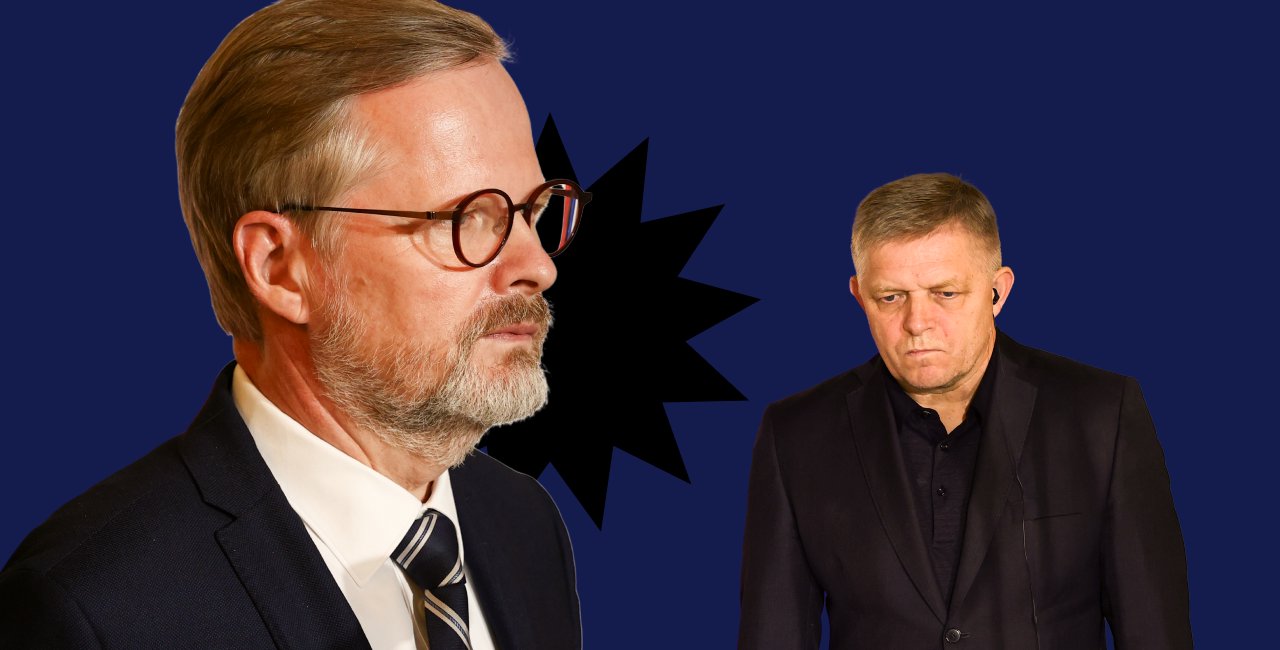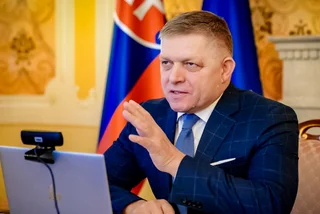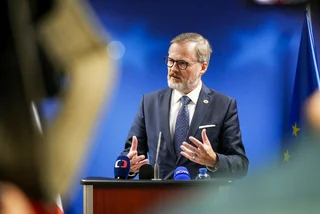Czech Prime Minister Petr Fiala has called on his Slovak counterpart Robert Fico not to obstruct the European Union’s 18th package of sanctions against Russia, amid growing concern that Slovakia is isolating itself within the bloc over its stance on energy and Ukraine.
In a letter sent over the weekend and confirmed by Fiala, the Czech leader appealed to Fico to support the new sanctions package, which targets Russia’s energy and banking sectors. The letter emphasized shared historical experience with Moscow’s aggression and the importance of EU unity in response to Russia’s war in Ukraine.
“Not only because of Ukrainian civilians who are facing increasingly heavy bombardment from Russia,” Fiala wrote, “but also because we have a common painful experience with the Kremlin’s policies. We share a responsibility for upholding European values of freedom, security, and solidarity.”
The EU needs unanimous agreement from all 27 member states to adopt new sanctions. Slovakia, heavily reliant on Russian gas and locked into a long-term contract with Gazprom until 2034, has made its consent contingent on guarantees for future energy supplies and protection from possible arbitration by Gazprom.
Fico: Slovakia risks being penalized financially
In a sharply worded response on Monday, Fico urged Fiala to “respect Slovakia’s interests,” particularly its need for affordable and secure gas supplies. He also proposed a joint Czech-Slovak government meeting in Bratislava “as soon as possible” to calm what he described as “unnecessary nervousness” in the international arena.
Fico maintains that Slovakia has no fundamental objections to the new sanctions package but demands an agreement with the European Commission on its energy concerns before approving the package. He has set Tuesday as the deadline for resolving the issue.
The standoff comes amid already strained Czech-Slovak relations. Fiala’s government suspended regular intergovernmental meetings with Slovakia last year over deep differences on foreign policy, particularly military aid to Ukraine. While Prague remains a strong supporter of Kyiv, Fico’s government halted all arms deliveries to Ukraine from state reserves after taking office in 2023.
Slovakia’s ruling Smer party has framed the issue as a matter of sovereignty. “Slovakia will not be a voting machine for Brussels just because the Czech Prime Minister wants it,” said Agriculture Minister Richard Takáč, Smer’s vice-chair, in a statement on Sunday.
Fiala, in turn, rejected any suggestion that he was interfering in Slovakia’s internal affairs. “I don’t need a response to my letter,” he told reporters in Prague. “But I would be very glad if Slovakia allowed the sanctions to go forward.”
Fiala warns of further isolation from EU
The Czech PM warned that Slovakia’s continued resistance risks further isolating it from key European partners. “We are in a moment when the unity of Western democracies matters deeply. Slovakia should not stand alone on this,” he said.
German Chancellor Friedrich Merz made a similar appeal to Fico during a recent conference on Ukraine in Rome, highlighting that only Slovakia’s approval was needed for the EU to move forward with the sanctions.
Meanwhile, Slovak opposition leaders have accused Fico of putting Russian interests ahead of Slovakia’s. “This is friendly cajoling of the Prime Minister, who is now defending the interests of Russia instead of Slovak citizens,” said Vladimíra Marcinková of the opposition Freedom and Solidarity party.
While the sanctions require unanimity, the EU’s broader plan to phase out Russian gas imports by 2027 is subject to a qualified majority vote, meaning Slovakia and likeminded countries like Hungary could be overruled.



